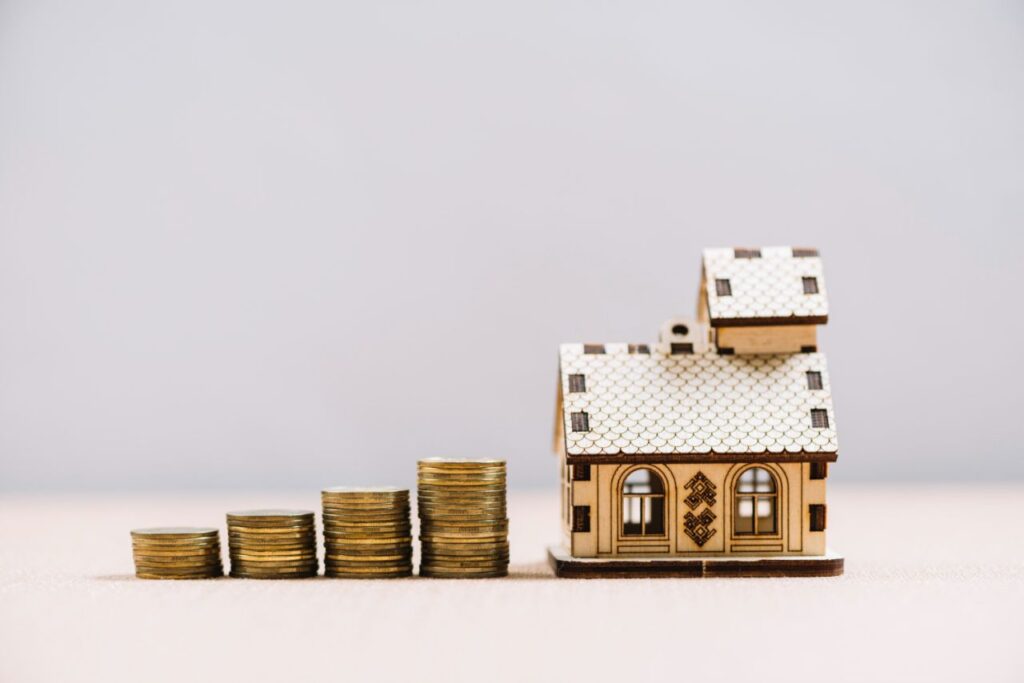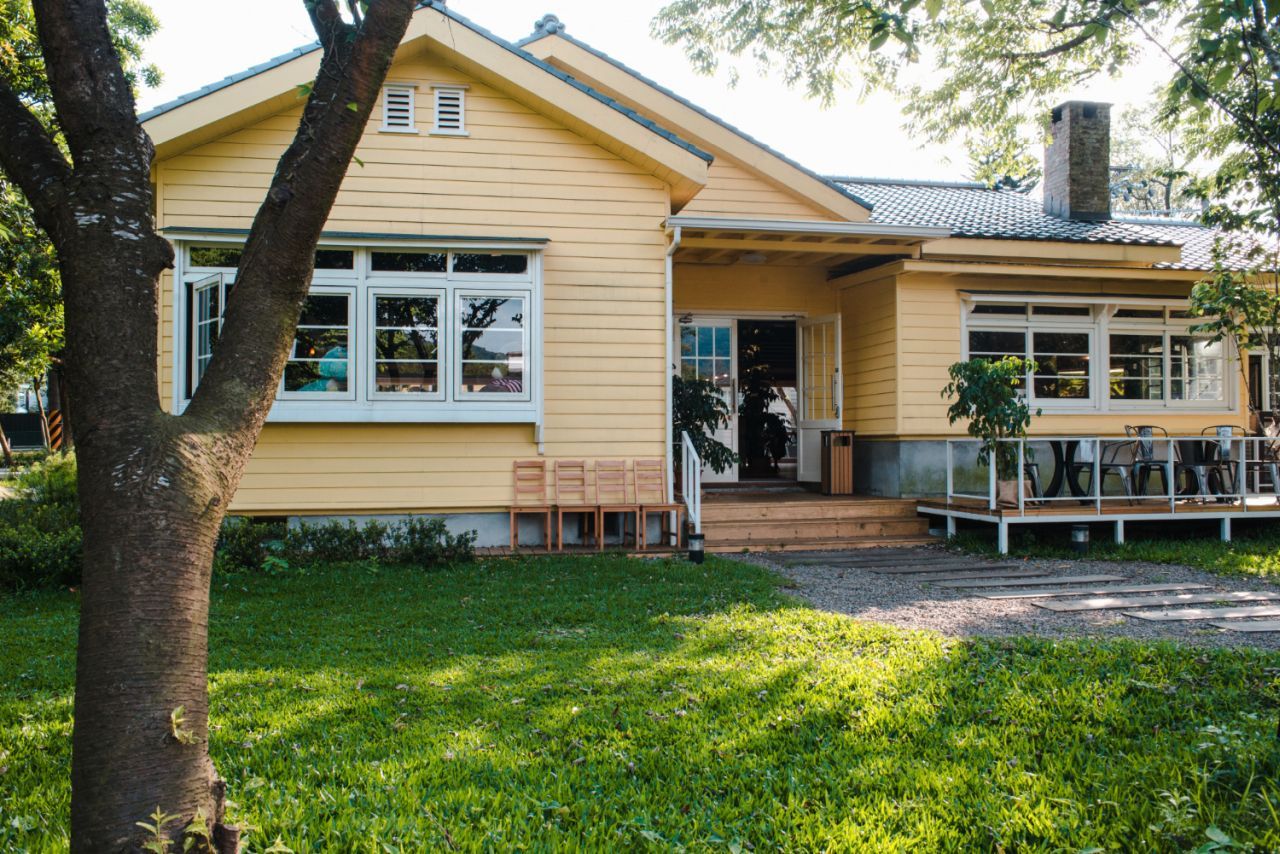Some people believe that failure is the best teacher there is. You're in luck since there are already a tonne of typical mistakes people make when investing in real estate that you can learn from and avoid doing yourself.
We frequently discuss what you should know and do when investing in real estate, but it's also vital to note what you SHOULD NOT do.
When investing in rental homes, avoiding typical blunders might make the difference between a successful investment and a flop. Your capacity to manage your money and expand your capital could be at risk if you don't exercise due diligence.
To keep you on the right track, we've listed 11 common blunders to avoid while investing in real estate.
1. Investing with your heart, rather than your head
We like to think that we are logical, but the truth is that when it comes to making decisions about purchasing a home, emotions are a major factor. That is to be avoided at all costs when it comes to your investment property.
Putting feelings aside and managing your property like a business are essential components of becoming a successful investor.
Imagine this: You're at an open house, you think the house is gorgeous, and it appears like the neighbourhood is perfect. The broker informs you that there have been multiple offers and that you must act quickly if you want to have a chance of purchasing the house. You start to experience FOMO and a range of feelings. Do. Not. Buy!
In the aforementioned case, you should always give it some thought and conduct further research on the property's capital appreciation and rental return.
Treating your property like a company entails more than just purchasing and selling homes.
- Not allowing family and friends to rent your property
- When it makes sense, increase the rent.
- Bring in a property manager to aid in decision-making
- Avoid falling in love with your home
If you want to avoid frequent real estate mistakes, objectivity is the name of the game and being analytical is the game plan.
2. Skimping on the research
You can't blame your dog for eating your homework in the world of rentals! You are merely fooling yourself if you do not conduct an adequate investigation.
We understand that conducting in-depth research can feel a little tiresome, particularly if you've been considering a number of rental properties for some time. But if you want to steer clear of improper investment property, it's crucial.
Before making a purchase, you should consider the following important questions:
Do you purchase new or used goods?
The great thing about new homes is that you can deduct depreciation from your taxes, which allows you to save a significant amount of money since you won't need to perform routine upkeep on them as you would with older homes.
But as you might anticipate, circumventing the hefty capital requirements can be difficult, especially for novice investors. When you purchase new properties through an agency, you run the risk of losing the previously indicated savings due to unstated commission and fees.
Older homes can be more labour-intensive, but they offer a fantastic chance for property upgrades that add value. They cost less, making them more affordable, and if you buy one in Australia's growing areas, you may be able to sell it for a profit.
What state is the property in?
Do the walls have any holes in them? The carpet has stains. Are the floorboards scratched up? Do the light switches and faucets function?
When you initially tour the property, keep an eye out for these clear indications of deterioration. When examining a property, bring your magnifying glass and embrace your inner Sherlock Holmes. Any damages you discover can be a solid reason not to purchase the home, or you might be able to negotiate a price reduction to reflect the expense of repairing the damage.
Are the facilities and amenities that tenants desire present?
Tenants are your clients if your investment property is your company. Although it may seem apparent, it is crucial logic to keep in mind when evaluating the desirability of your rental property.
Always make adjustments to your property to better meet the demands of your visitors. Who is your intended audience? What are they looking for in a home?
We recommend reading our post on how to find out what tenants want, where you'll get a list of inquiries you ought to make before making a purchase.
3. Cutting out the experts
Everyone is unique, but we can guarantee that you should always seek the counsel of professionals.
Property owners frequently use us to help them resolve conflicts or organise their portfolio of properties.
We advise you to go for it if you feel overwhelmed or like you need a second opinion.
Here are some qualified professionals who can assist you in a range of circumstances:
An accountant can assist you if you have questions regarding your taxes or cash flow:
- You can discuss any worries with your mortgage broker regarding your mortgage or the repayment of any property loans.
- You can take a surveyor or real estate broker with you if you need assistance conducting an exhaustive property examination.
- You can employ a property manager to take care of managing your properties for you if you have problematic renters who are frequently in arrears or simply feel like it is taking too much time.
4. Not having a property investing strategy
If you want to own a business and be successful at it, you must first learn how to enter the market. An investing plan can help with that.
The majority of things in real estate involve trade-offs. While high-cost properties are more difficult to obtain financing for but produce higher returns, low-cost properties have lower yields but are simpler to purchase. There are a variety of ways to enter the real estate market, depending on how much money you have saved.
- Imagine you have a close relative who is ready to risk some of the value of their property to assist you in getting a loan. You might be considering applying for a guarantor loan.
- The solution for you can be fractional ownership, which is purchasing shares in a single property and receiving a portion of the rent and capital gain if the property is sold, if you choose to go it alone without having to overcome the high entry hurdle.
Your financial condition will ultimately determine which choice you should choose. Because of this, we often get the question, "Is this a good time to buy a house?" It's always a good moment to buy, we often say, as long as your finances are in order.
If you're interested in learning more about your alternatives for entering the real estate market, see our article on the seven most popular investing techniques.
5. Not having a property financing plan
Don't wing it when it comes to your real estate financing; do yourself a favour. Be sure to plan out how you will pay for ongoing expenses like utility bills and loan payments.
Before you start, be aware of your financial objectives, the level of risk you are ready to accept, and your monthly affordability. How many months can you survive if everything goes wrong and you lose your income?
Additionally, think about whether you want to adversely or favourably gear your property.
When your annual rental income and holding costs are computed, negatively geared properties operate at a nett loss. Due to the tax advantages and access to better capital growth assets, almost 60% of Australian properties are negatively geared.
Positively geared properties operate at a nett gain, which means that your rental income exceeds all of your operating and maintenance expenses. The advantage is clear: You gain another source of money (albeit a small one). Positive gearing has always been the less prefered choice, but that is changing in 2021.
Finally, you'll have to decide if you want an interest-only loan or a principle and interest loan. We strongly advise reading our special post on choosing the appropriate loan structure for an investment property first.
6. Negatively gearing when you can’t afford it
Negative gearing carries risk even though it's an excellent technique to lower your taxable income and increase your capital gains.
You'll have to be able to get used to losing money all the time since it will happen frequently in the short run.
To avoid having to sell your house due to bad luck, you must make sure you're in a strong financial position from the start.
7. Buying the wrong property
With so many options, it's understandable why novice investors mistakenly choose the least desirable houses. Here are some things to think about before purchasing a rental property if you want to learn how to prevent a bad investment property.
Think like a tenant
It makes no sense to spend thousands of dollars on a luxurious refurbishment just to raise the rent when your property is next to a university with plenty of budget-conscious students.
You must be aware of what the local residents want in a rental home!
The minor repair, the better
When you are inspecting a property, be vigilant. The last thing you want to do is purchase a home that will end up costing you a fortune in maintenance and repairs. Wall cracks, moisture, and pest warning indicators are all cautionary signs that demand your attention.
Don’t be a customer
There may come a moment when a slick real estate agent or dazzling salesperson tries to sell you an apartment that hasn't yet been built. Never forget that these individuals are, first and foremost, salespeople. It's also possible that what they want to sell you isn't the greatest option for you.
8. Buying for the short term
Real estate requires time to appreciate, if there is one thing that can be said about the property market. If you give it a few years, time will restore all things, including your home investment.
According to Australia's track record, your capital gains will increase the more time you invest in the market. Did you realise that since 1993, home prices have increased by 412 percent?
To fully grasp why market time usually outperforms market timing, read our article on determining the best time to buy real estate.
9. Not leaving enough to live on
Even though real estate investment may seem appealing, you should hesitate before making a commitment.
Just because you can't wait, don't accept a home that isn't of investment-grade quality.
Make sure you have enough money saved up to make a respectable down payment on a respectable piece of real estate, to pay the monthly loan payments, and to cover holding fees in case of unforeseen disasters.
If not, you can always be stressed out about money, attempting to pay for necessities while simultaneously questioning your ability to maintain your investment.
If you want to avoid making this common error, a decent rule of thumb is to have 2 to 4 months' worth of rental income set aside as a financial cushion.
The real estate market won't change, so we always advise consulting a financial counsellor before acting.
10. Selling out of fear
The real estate investing mistakes don't end once you've entered the property market, upfront costs and all. You still have to withstand the real estate market's storm.
Property values have been found to double every seven to ten years, which is fortunate for investors. The main drawback is that downturns are unavoidable during this period, which is terrifying and causes many investors to sell their investments before they are ready.
Don't succumb to terror, and if at all possible, maintain holding on to your possessions.
11. Not hiring a property manager
You might want to rethink your decision if you intend to self-manage your investment property. Even though you avoid employing property manager and save a few thousand dollars year, the time and effort you put in won't be worthwhile in the long run.
9 Things You Need to Know Before Buying an Investment Property
We are aware that if you are buying an investment property, you want to steer clear of a bad choice right away. It's understandable to be nervous about making a mistake when hundreds of thousands of dollars are at stake.
And even though it gets simpler after a few years of practise, the worry that you might have overlooked something still lingers.
We've outlined what you need to consider, decide upon, and be aware of so you may confidently choose an appropriate investment property.
1. How will you finance your property?
Even though we would prefer it otherwise, there are some cons to property finance.
You'll need to decide whether to negatively gear your property or positively gear your property based on your financial standing and level of risk tolerance.
Negative gearing
If your property is negatively geared, it indicates that the holding costs outweigh the income it brings in on a nett basis (mostly rent).
Once that is done, you can use your negative cash flow property to lower your taxable income. All of this is carried out with the hope that, when you sell the property, capital growth would eventually make up for the loss and add a good return on top.
It's a very practical but hazardous technique because you need a strong financial foundation to start with so you can manage the ongoing losses the property will experience.
If you can endure the monthly losses for annual tax gains, negative gearing is a terrific way to maximise the return on your real estate investment.
Negative gearing is the most common form of property financing in Australia, where almost 60% of investors are in real estate. However, according to the most recent real estate news, positive gearing will make a comeback in 2021 while negative gearing is on the decline in popularity.
To determine if negative gearing is the best choice for you, read our in-depth article about it.
Positive gearing
Positively gearing your property functions the exact opposite of negative gearing, as the term implies. The property doesn't experience recurring losses because it generates more rent than it costs to operate, which results in a steady profit.
It's undeniably a less dangerous tactic. one that first-time purchasers find to be quite appealing. However, it's not always the simplest technique to start; if you want to make it work, you could have to look at houses in nearby regions.
For first-time purchasers who wish to secure an additional income stream, positive gearing is a fantastic alternative.
Additionally, the passive income and capital growth may be somewhat modest compared to the negatively geared variant.
Before making a choice, make sure you have read up on positive gearing to understand its benefits and drawbacks as well as when to use it.
P&I or IO?
Principal and Interest and Interest-Only are abbreviations for respectively. Both have advantages and disadvantages.
Loans that require only interest repayment are referred to as interest-only loans (usually 1-10 years). Following that time, you start paying interest on top of the amount you borrowed.
There is no magic solution for property financing, and depending on your circumstances, both P&I and IO are acceptable.
However, with principal and interest loans, you are required to pay back your loan as well as interest right away. In this manner, you pay more initially, but the overall amount of your claim is lesser, so you end up saving money over time.
We recommend reading our in-depth post on the optimal loan structure for investment property and when to choose P&I or IO before making your choice.
2. Where are you looking to buy?
Just as significant as the "what" is the "where." You should have some ideas about how the location of your property influences your returns.
Sell the neighbourhood, not just the house.
Although individual renters have varied preferences, these features and facilities are typically valued:
- Neighbouring restaurants are plentiful
- Within walking distance to a train station and public transportation
- If you rent to students, being close to the university is important.
- School systems
- Close proximity to a supermarket
- A park close
Having these features will let you charge a higher rent and fill vacancies faster when leasing your property.
Regional or urban?
The decision between regional and urban locations is a trade-off, like most other decisions in the property.
Urban regions have better capital growth and lower vacancy rates, but they can be out of reach for many investors because to their high upfront costs.
Although there is a reduced entrance barrier when investing in rural areas, it is also accompanied by substantially greater vacancy rates and slower capital growth.
However, don't dismiss regional areas too quickly! Recent data indicates that the COVID-19 pandemic, which started the work from home trend, will cause a boom in the local real estate market in 2021.
Investing in property overseas
One of the most low-cost strategies to buy real estate is by purchasing property abroad.
While having a charming seaside home on the French Riviera is already a source of pride, this investment approach has tangible advantages. You can use it as your vacation home, you have access to properties with low capital requirements, and you don't put all your financial eggs in one basket (or one real estate market).
For a detailed analysis of the benefits and drawbacks of investing internationally, read our article on how to invest in real estate on a budget.
3. What type of property are you looking to buy?
Different forms of investments might be appealing to you depending on the investing journey you've envisioned.
House, unit, or land?
Even though a piece of undeveloped land might be attractive as a clean slate for your major development project, it is not a common choice due to the time and work required to make a profit. If you want to have a chance of success, skill and extensive understanding of the field are essential. Additionally, it may be difficult to keep up with mortgage payments since you won't be receiving any rent.
Additionally, units aren't very forgiving for novice investors. In contrast to residences, these properties include body corporate and strata fees that might reduce your cash flow.
Despite their higher cost, homes remain the most popular type of investment property, accounting for around 37.5% of new acquisitions compared to 33.75% of purchases of apartments, according to MCG Quantity Surveyors.
The best investment property will ultimately depend on your financial situation and level of risk tolerance.
New or old?
The benefit of buying a new home, aside from the absence of maintenance difficulties, is that you can write off far more in depreciation on your property taxes than you can with an older house. Holding costs are a fantastic strategy to counterbalance any losses from those!
Just be cautious if you're buying a brand-new from a real estate marketing firm because they frequently tack on commissions to the purchase price.
Older houses are a great opportunity to enhance value by remodelling your property, even though they can run the danger of costing you more in maintenance.
However, you should take care to avoid purchasing anything that will cost you more to maintain than it would earn you in profit. Because of this, it's a good idea to hire a qualified building inspector before you complete the purchase if you don't know how to conduct a property inspection.
Residential vs commercial
The biggest advantage of selecting a commercial property over one that is residential is that you'll probably get a greater rate of return - between 5 and 12 percent. This is due to the fact that commercial tenants are accountable for paying the property's expenses, which means that you'll likely have a positive cash flow.
Additionally, lease durations may be considerably longer than those for a typical residential property, so you won't have to worry about vacancies occuring too frequently. The process of filling vacancies in commercial buildings can often be very time-consuming.
The residential property can also be financed much more easily. For residential property, the typical borrowing amount is 80%, but only about 60% for commercial property.
Prior to diving into the commercial real estate investing pool, much research is necessary. Because the demand (or lack thereof) for specific businesses will determine the success or failure of your commercial property, you must be aware of the broader economic trends.
We advise starting with a modest residential property, then once you've gained some experience moving on to commercial property.
4. What to look for in an investment property
You shouldn't cut corners when performing your home examination. Your rental yield may be significantly impacted by many physical characteristics.
When viewing a home you're thinking of purchasing, keep the following in mind:
Features that determine the value of the rental
- Features that affect the rental's value
- Size of the home's bedrooms
- If a separate dining room exists
- Size of the wardrobes and rooms
- How many bathrooms there are in the house
- The kitchen's size and condition
- How much space the house has for storage
- If there is a garage,
- Suppose the location is safe (i.e. no windows that are easy to break into). This will have an effect on your insurance costs.
- If there is convenient parking on site
- If there will be a lot of upkeep required,
The general state of the house
- Verify the walls for cracks and holes.
- Look for water spots and mould.
- Check to see if the air in cabinets is dry and free of mould.
- Look to see if anything needs to be fixed.
- Verify the ceiling for any sinking areas. To achieve this, use a flashlight to scan the area for any pockets that resemble parachute pockets.
- The gutters are free of rust.
- Verify that every roof tile is straight and in good condition.
After purchasing, make sure you're keeping the home in great condition by performing regular inspections! After all, when the time comes to sell, prospective buyers will examine the same things you once did.
The rule states that a homeowner should expect to spend, on average, around 5% of the value of the home (per year), on the costs we mentioned above. Here's how it should go (in an ideal world): Property taxes should not amount to more than 1% of the value of the home.
real estate investing is also hard! Real estate investing requires an initial investment of personal effort and time. And while it can be passive eventually, buying and owning properties is more like a part-time or full-time job at first.
The 1% rule of real estate investing measures the price of the investment property against the gross income it will generate. For a potential investment to pass the 1% rule, its monthly rent must be equal to or no less than 1% of the purchase price.




